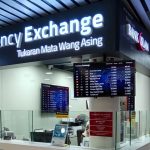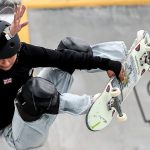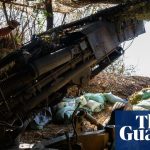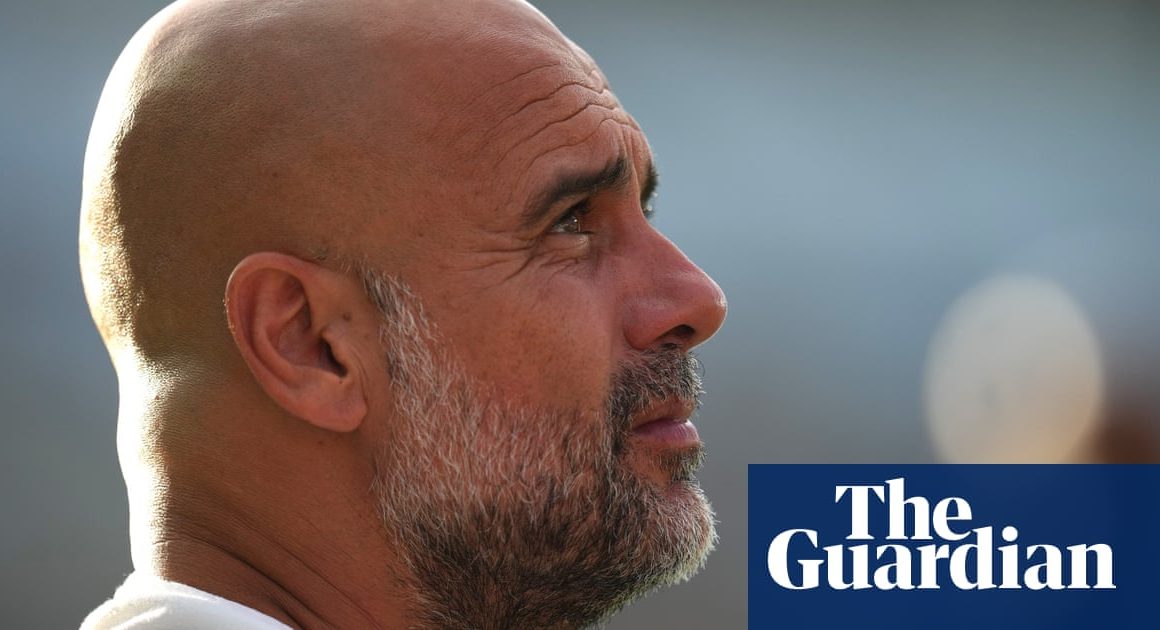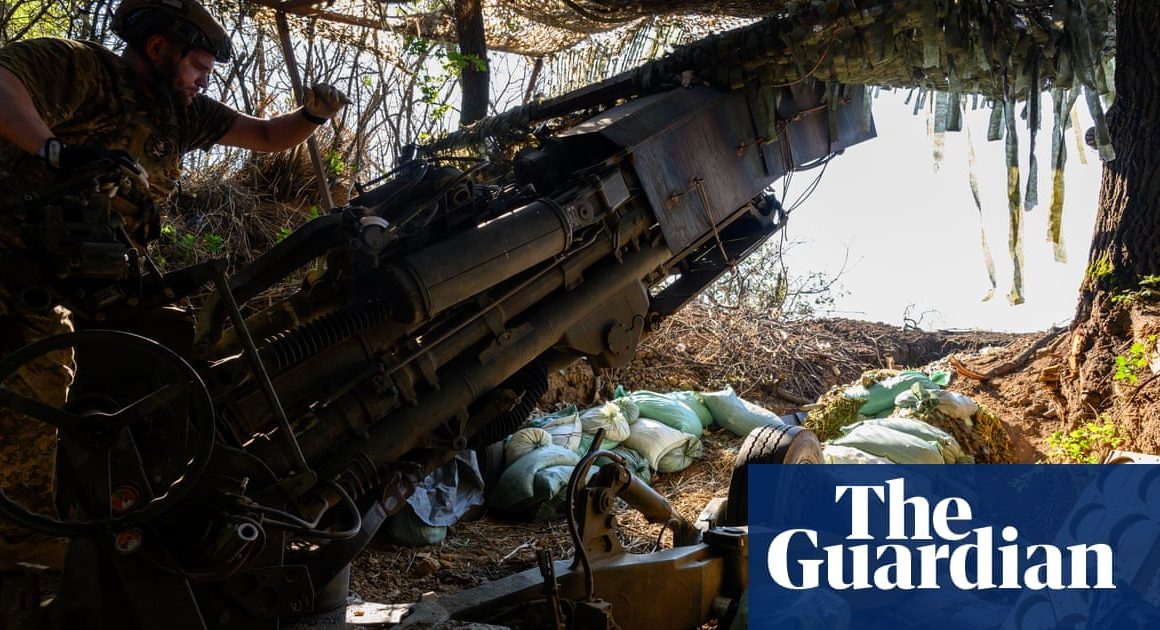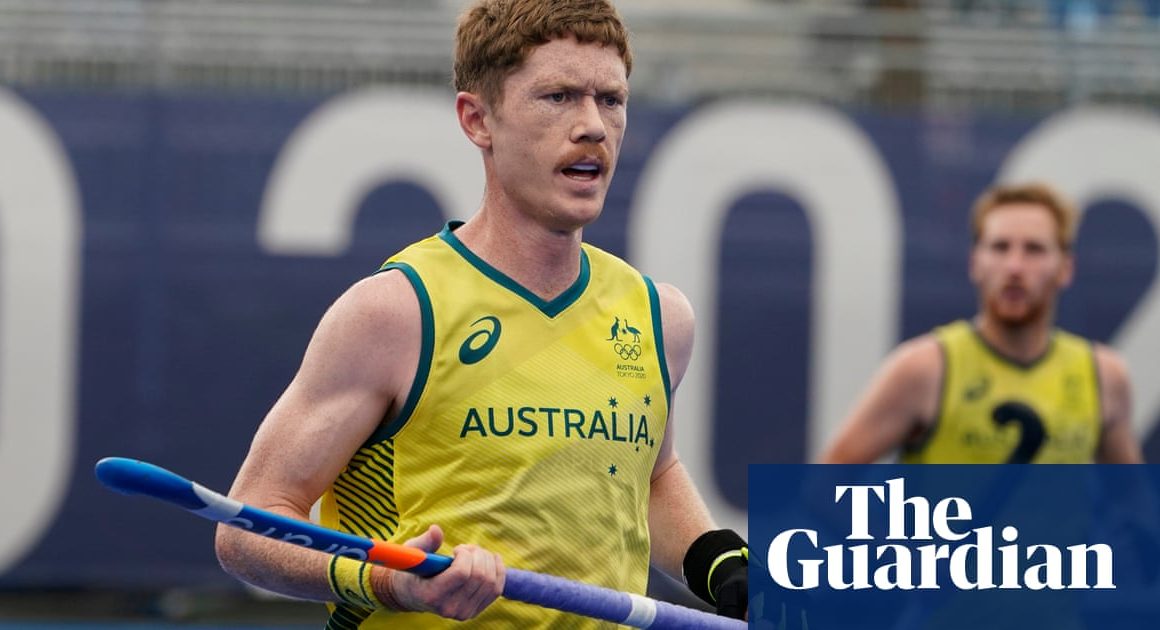Opening summary
Hello and welcome to the Guardian’s live coverage of the war in Ukraine.
The development of drones is key to give Kyiv an advantage over “a numerically superior” Russian forces, Ukraine’s commander-in-chief, Oleksandr Syrskyi, has said.
“The development of the use of unmanned systems is my priority,” Syrskyi wrote on Telegram after meeting his deputy, Vadym Sukharevskyi. “We are looking for asymmetric solutions to gain a qualitative advantage over a numerically superior opponent.”
Military analysts say drones could give Ukraine a technological edge over Moscow, given its shortages in artillery shells and other more traditional weapons, though Russia’s drone industry is also developing rapidly.
In other key developments:
-
Following his landslide presidential election win – condemned as illegitimate by western leaders – Russia’s president, Vladimir Putin, addressed a crowd at a Red Square pop concert on Monday to mark 10 years since Russia’s annexation of the Crimean peninsula from Ukraine. Putin, who was basking in his election victory, told the crowd that Crimea was the “pride of Russia” and that the Black Sea peninsula had “come back to its native harbour” when Moscow annexed the region. “Through decades, they carried faith in their fatherland. They never separated themselves from Russia and that’s what allowed Crimea to return to our common family,” he said. The official tally from the three-day election was a 87.28% share of the vote for Putin, which the Kremlin on Monday portrayed as a dominant victory, saying the results showed that the people had consolidated around the Russian president.
-
Ukrainian troops are strengthening fortifications in the Sumy region, in the north-east of the country, an official has been quoted as telling the Ukrainian news agency Ukrinform. “The defence forces in the Sumy region perform combat tasks to protect the state border and prevent Russian sabotage and reconnaissance groups and the Russian military from crossing the border,” Vadym Mysnyk said.
-
The EU is preparing to levy tariffs on grain imports from Russia and Belarus to placate farmers and some member states, the Financial Times reported. The European Commission is in the coming days expected to impose a duty of €95 (£81) per tonne on cereals from Russia and Belarus, the FT said, adding that tariffs of 50% would also be placed on oil seeds and derived products.
-
Russian attacks against Ukraine have killed four people and injured six others over the past day, damaging homes and civilian infrastructure, regional officials reported on Tuesday. Russia reportedly targeted nine Ukrainian regions – Dnipropetrovsk, Sumy, Mykolaiv, Luhansk, Zaporizhzhia, Chernihiv, Kherson, Kharkiv, and Donetsk, with the casualties being killed in the latter three areas.
-
During a visit to Kyiv, the Republican US senator, Lindsey Graham, said he was confident an aid package stalled by Republican opposition in the US Congress would soon be approved, but called for aid to take the form of a low-interest, waivable loan. He and other Republicans have backed the notion of loans rather than grants for US allies to make the expenditure more sustainable and popular, a plan espoused by former president Donald Trump, the likely Republican candidate in the 2024 presidential election.
-
Turkey’s president, Recep Tayyip Erdoğan, has congratulated Putin on his re-election and offered to mediate between Moscow and Ukraine, the Turkish presidency announced. Turkey’s top diplomat, Hakan Fidan, also hit out at “dangerous” rhetoric coming from both Europe and Moscow. “This war must end,” Fidan said in an interview with CNN Turk aired on Monday evening. “On both sides, tens of thousands of mothers are burying their children and it’s continuing. Both sides have only too much to lose and nothing to gain,” he said.
-
EU foreign ministers strongly support taking the revenues from frozen Russian assets to help Ukraine, EU foreign policy chief Josep Borrell said. “I am not saying there was unanimity but [there was] a strong consensus to take this decision,” Borrell told reporters on Monday after a meeting with the ministers held in Brussels.
-
The Council of the European Union ratified an agreement to increase the EU’s support for the Ukrainian military by €5bn (£4.3bn) through a dedicated assistance fund. The EU said the money would fund training and both lethal and non-lethal military gear.
Key events
Moldova expelled a Russian diplomat over the opening of polling stations for Russia’s presidential election in its breakaway region of Transnistria, the foreign ministry said after summoning the Russian ambassador on Tuesday.
The ministry protested over the opening of the polling stations in Transnistria, a pro-Russian enclave that split from Moldova as the Soviet Union was collapsing.
Earlier government statements called Russia’s move disrespectful to Moldova’s sovereignty, according to Reuters.
Transnistria, which borders Ukraine to the east, has maintained autonomy from Moldova for three decades with support from Russia.
Since Moscow began its full-scale assault on Ukraine, officials in Chișinău, the Moldovan capital, have been concerned the Kremlin could use Transnistria to open a new front in the south-west, in the direction of Odesa.
You can read more about Transdniestria’s relationship with Russia and its geopolitical positioning here:
Three people were killed by overnight shelling in the Kherson region, Gyunduz Mamedov, a former deputy prosecutor general of Ukraine, wrote on X.
He said that Russian forces attacked the Donetsk town of Selydove with 2 S-300 missiles, leaving four people injured and 24 private houses damaged.
3 people were killed after night shelling in Kherson region. Also, at night Selydove in Donetsk region was attacked with 2 S-300 missiles – 4 people were wounded, 24 private houses and 4 cars were damaged.#StopRussianAggression pic.twitter.com/EDIWdcAHIM
— Гюндуз Мамедов/Gyunduz Mamedov (@MamedovGyunduz) March 19, 2024
Putin to visit China in May for talks with Xi Jinping – report
Vladimir Putin will travel to China in May for talks with his Chinese counterpart, Xi Jinping, in what could be the Russian president’s first overseas trip of his new presidential term, sources have told Reuters.
“Putin will visit China,” one of the sources, said. The details were independently confirmed to Reuters by four other sources, who also spoke on condition of anonymity.
Putin’s trip to China is thought likely to take place in the second half of May, according to one source.
China, which congratulated Putin on his election victory, has bolstered its military ties with Russia over recent years.
The two countries declaring a “no limits” partnership in February 2022 when Putin visited Beijing just days before the Kremlin launched its full-scale invasion of Ukraine.
China and Russia are also members of the Brics group of emerging economies, which aim to challenge US domination of the global economy by uniting emerging economies including Brazil, South Africa and India.
Opening summary
Hello and welcome to the Guardian’s live coverage of the war in Ukraine.
The development of drones is key to give Kyiv an advantage over “a numerically superior” Russian forces, Ukraine’s commander-in-chief, Oleksandr Syrskyi, has said.
“The development of the use of unmanned systems is my priority,” Syrskyi wrote on Telegram after meeting his deputy, Vadym Sukharevskyi. “We are looking for asymmetric solutions to gain a qualitative advantage over a numerically superior opponent.”
Military analysts say drones could give Ukraine a technological edge over Moscow, given its shortages in artillery shells and other more traditional weapons, though Russia’s drone industry is also developing rapidly.
In other key developments:
-
Following his landslide presidential election win – condemned as illegitimate by western leaders – Russia’s president, Vladimir Putin, addressed a crowd at a Red Square pop concert on Monday to mark 10 years since Russia’s annexation of the Crimean peninsula from Ukraine. Putin, who was basking in his election victory, told the crowd that Crimea was the “pride of Russia” and that the Black Sea peninsula had “come back to its native harbour” when Moscow annexed the region. “Through decades, they carried faith in their fatherland. They never separated themselves from Russia and that’s what allowed Crimea to return to our common family,” he said. The official tally from the three-day election was a 87.28% share of the vote for Putin, which the Kremlin on Monday portrayed as a dominant victory, saying the results showed that the people had consolidated around the Russian president.
-
Ukrainian troops are strengthening fortifications in the Sumy region, in the north-east of the country, an official has been quoted as telling the Ukrainian news agency Ukrinform. “The defence forces in the Sumy region perform combat tasks to protect the state border and prevent Russian sabotage and reconnaissance groups and the Russian military from crossing the border,” Vadym Mysnyk said.
-
The EU is preparing to levy tariffs on grain imports from Russia and Belarus to placate farmers and some member states, the Financial Times reported. The European Commission is in the coming days expected to impose a duty of €95 (£81) per tonne on cereals from Russia and Belarus, the FT said, adding that tariffs of 50% would also be placed on oil seeds and derived products.
-
Russian attacks against Ukraine have killed four people and injured six others over the past day, damaging homes and civilian infrastructure, regional officials reported on Tuesday. Russia reportedly targeted nine Ukrainian regions – Dnipropetrovsk, Sumy, Mykolaiv, Luhansk, Zaporizhzhia, Chernihiv, Kherson, Kharkiv, and Donetsk, with the casualties being killed in the latter three areas.
-
During a visit to Kyiv, the Republican US senator, Lindsey Graham, said he was confident an aid package stalled by Republican opposition in the US Congress would soon be approved, but called for aid to take the form of a low-interest, waivable loan. He and other Republicans have backed the notion of loans rather than grants for US allies to make the expenditure more sustainable and popular, a plan espoused by former president Donald Trump, the likely Republican candidate in the 2024 presidential election.
-
Turkey’s president, Recep Tayyip Erdoğan, has congratulated Putin on his re-election and offered to mediate between Moscow and Ukraine, the Turkish presidency announced. Turkey’s top diplomat, Hakan Fidan, also hit out at “dangerous” rhetoric coming from both Europe and Moscow. “This war must end,” Fidan said in an interview with CNN Turk aired on Monday evening. “On both sides, tens of thousands of mothers are burying their children and it’s continuing. Both sides have only too much to lose and nothing to gain,” he said.
-
EU foreign ministers strongly support taking the revenues from frozen Russian assets to help Ukraine, EU foreign policy chief Josep Borrell said. “I am not saying there was unanimity but [there was] a strong consensus to take this decision,” Borrell told reporters on Monday after a meeting with the ministers held in Brussels.
-
The Council of the European Union ratified an agreement to increase the EU’s support for the Ukrainian military by €5bn (£4.3bn) through a dedicated assistance fund. The EU said the money would fund training and both lethal and non-lethal military gear.
